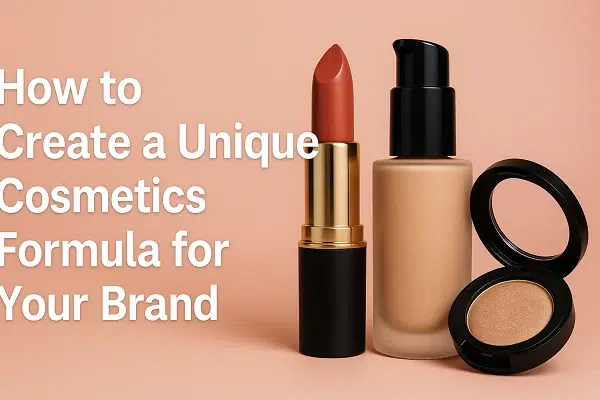Most people believe that the cosmetic industry is restricted to foundations, lipstick, eye shadow, nail polish, etc. However, the cosmetic industry is so much more than that. Other products like body washes, skin lotions, toothpaste, and personal care products are also cosmetics. That means the cosmetic market is vast, as everyone uses some kind of personal care product.
If you have an idea to start a cosmetic business, you might wonder how much it will cost you and whether it will be profitable. Let’s have a look at the startup costs for a cosmetic business:
Research and Development
Cosmetics market research is essential to do in order to find the niche in the market that has little players in it and is one that people can benefit from and that you are passionate about. Once you have found your niche, it is time to think about the product development cost, which usually covers every part of creating your product. To get the perfect cosmetic product, you might need to also work with a cosmetics formulator which costs $2500 on average. Materials can cost quite a bit as well, but the pricing will range based on what kinds of ingredients you’re using and where you’re sourcing them from. These days, the supply chain crisis has caused the prices of materials and ingredients to go up.
Production
Cosmetics formulation, packaging, and filling would cost you about $4-$5 per unit on average. However, you can’t just produce a few bottles at a time—the higher your production materials and packaging purchase, the lesser your costs.
The cost of labeling usually ranges from $500 – $2000, and working with someone with experience creating cosmetic labels can minimize expenses. Before launching your cosmetics line, you have to carry out several tests on your products to confirm they’re safe for consumers to use. Such as:
- Microbial testing: costs about $350 per product.
- stability testing: costs about $500
- Safety testing: costs between $800-$1500. If you’re selling an SPF product, SPF testing will cost you around $3000-$4000
You will also need to budget for warehouse space and any tools needed to create and package the products. For something like lip gloss, you’ll need a machine that will bottle the lip gloss perfectly. This can be costly, but there are ways to cut back on these costs such as using a private label cosmetics supplier, which we’ll discuss later in this article.
Marketing
You have to invest in marketing to assure sales for your cosmetics products. Initial start-up costs are usually lower. If your cosmetics business is online, you will need a website that costs less than $500 a year to maintain. You will also need to carry out promotions on social media platforms. Email marketing will cost you relatively low and requires mostly time investment.
Shipping/Handling
The next step in setting up your cosmetics business is filling orders. If you are shipping orders, you’ll need shipping boxes, people to fill the orders, and the shipping costs. You should include shipping costs as part of your expenses when deciding your product price. Most business owners make the mistake of not charging enough for their products. Remember there are always hidden costs like shipping costs. If you are not making profit, it will be easy for you to go out of business.
Cut Costs With a Private Label Business
Starting your cosmetics business with a private label manufacturer is less risky, and unit costs are usually cheaper. You can buy the actual number of products you need, enabling you to maintain a minimal inventory and lower your risk. Instead of investing your money in a product that might not sell, you can test customer demand with a small number of products. Once you are sure the product is a good fit, you can begin saving money by placing bulk orders.
The main benefit to working with a private label cosmetic supplier like Aurora Cosmetics is that you will be able to skip the research and development stage, as well as the supply chain, formulation and packaging and work directly with a company that will let you package their products with your own label. This is a great way to cut costs while creating a product that your consumers will love, and most private label cosmetics suppliers will let you customize your products to fit your needs exactly.







